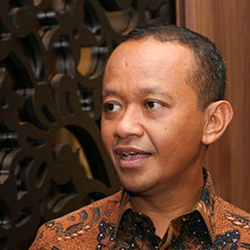Indonesia is a treasure trove of natural resources that can be exploited to provide new supply chains for electric vehicle batteries
Blessed with favourable demographics, sought-after minerals, and vastly untapped energy reserves, Indonesia is a natural charmer for overseas investors. The 267 million-person country, the world’s fourth most populous, is at once Southeast Asia’s largest economy, the world’s largest Muslim nation and the world’s largest archipelago. Across this expansive system of 17,508 islands, natural wealth is found in the form of a burgeoning middle class of 50 million and large pockets of precious minerals, including 25% of the world’s entire deposit of nickel, a key component in the production of batteries.

Today, Indonesia is moving to the next stage of nickel processing and plans to launch the production of lithium batteries by 2023, offering global investors a new supply for the booming electric vehicle market. “In the future, the green economy will grow in importance and Indonesia has the potential to be the headquarters for battery-making companies,” observes Bahlil Lahadalia, Chairman of the Indonesia Investment Coordinating Board (BKPM). “Eighty percent of battery materials, chiefly nickel, cobalt and manganese, are found here,” he adds.
Indonesia’s government has set bold targets for FDI, which reached $28.2 billion in 2019, as President Joko Widodo looks to establish stronger bilateral cooperation with the UAE. “Indonesia has changed under President Widodo,” says Lahadalia. “There’s been a lot of regulatory change, and the government is working hard to ensure that investors will get a quick, efficient response to their needs,” Lahadalia observes.
As of December 2019, Coordinating Minister for Maritime Affairs and Investment Luhut Pandjaitan estimated that $137 billion in investments were in the pipeline for infrastructure projects, with 46% slated for oil and petrochemical refinery projects and 34% for mineral processing facilities. The remaining investment will be for transportation, tourism and other sectors. This investment includes FDI from the UAE for three refineries operated by state-owned oil company Pertamina.